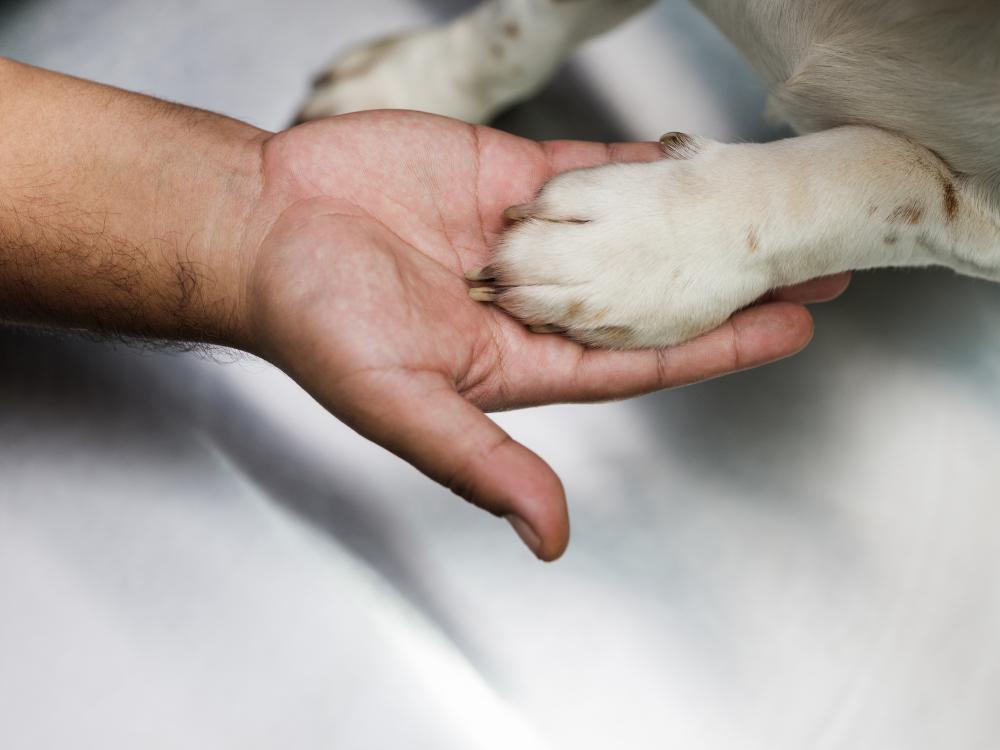
As our pets age, our concerns about their health evolve. One important consideration for senior pet care is arthritis. Be on the lookout for the following pet arthritis symptoms as your dog or cat approaches older adulthood.
Unexpected Behavior Changes
Some of the early signs of arthritis can be less obvious. If you notice your senior pet slowing down by becoming less playful, more easily fatigued, listless, or even guarded and aggressive, they may be protecting themselves against discomfort due to developing joint issues.
In the beginning, arthritis in cats and dogs can be less painful. If they are stiff or losing range of motion, they could simply become more conservative behaviorally. Look for adjustments in everyday life, such as:
- Decreased interest in walks and playtime
- Preference for soft, yet supportive bedding
- Avoidance of stairs or slippery tile and wood flooring
Basically, the less movement, the better if your pet feels their joints are less reliable.
Pay careful attention to fear and aggression, particularly if you have children or other pets. A dog or cat who wouldn’t normally growl or bite might lash out, particularly when you apply pressure to a certain spot.
Mobility
Joint pain in pets is often easier to spot through physical changes. For instance, if you know that your older dog or cat has not experienced an injury, then arthritis is a potential culprit behind:
- Limping
- Struggles to lay down and get back up
- Unusual sitting or sleeping positions
Changes in body shape that can’t be explained via purposeful diet and exercise can also be signs of arthritis. Exercise reluctance due to pain may result in loss of muscle or general weight gain. Unfortunately, increased weight on top of decreased muscle can lead to further strain on joints.
Housetraining Regression
If your older dog starts having accidents in the home or your senior cat goes outside of the box, it can be difficult to tell whether this is an issue with your pet’s aging mind or body. And it might be a combination of both. Accompanying issues, such as failure to respond to regular prompts and commands or increased anxiety, can be a sign of cognitive decline. However, if you’re not noticing other mental changes, you could be looking at another sign of arthritis. Your dog might not be fast enough to make it outside due to stiff joints. Your cat could struggle to lift achy legs over the sides of the litterbox. Consider using puppy pads indoors or switching to a wide litterbox with very short sides. And in any case, reach out to your veterinarian to discuss these changes in your pet’s well-being.
Veterinary Care for Arthritic Pets
At your dog or cat’s wellness visit, your veterinarian should talk to you about appropriate life stage concerns, but if you suspect that your pet is in pain, you should make an appointment as soon as possible. Sky Canyon Animal Hospital offers in-house diagnostics, including X-rays that can reveal whether an injury or arthritis is behind that pain.
If your veterinary team does determine that arthritis is to blame, your pet may benefit from acupuncture, cold laser therapy, a new at-home exercise routine, a diet change, or other pain and stiffness relief tactics.
While it is natural for pets to slow down in their golden years, it is also natural for pet owners to want to help them avoid chronic discomfort and pain. Please call us at (951) 461-4100 if you have health concerns for your senior pet.

